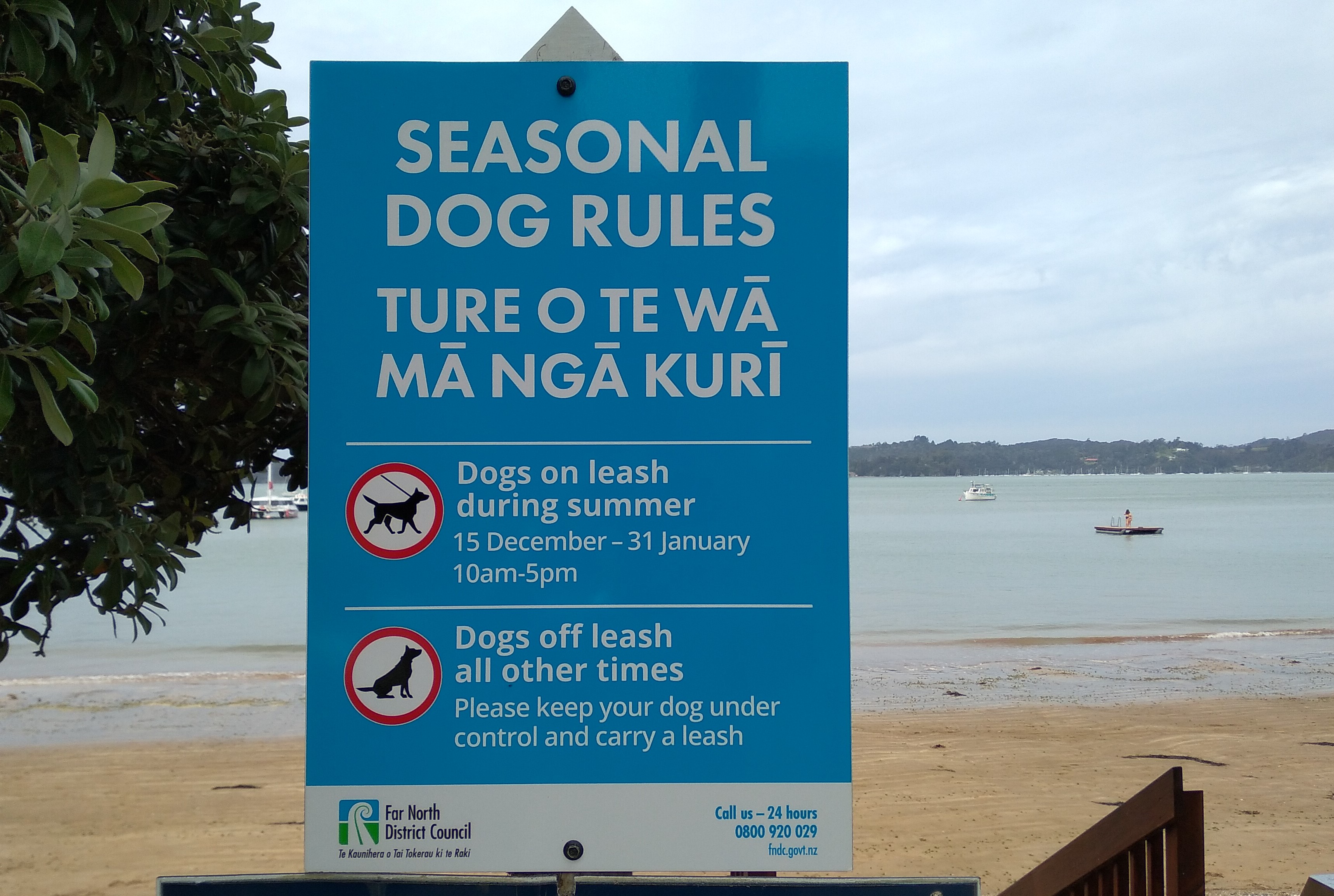Dog owners urged to take extra care during holidays
Far North District Council is reminding all dog owners to ensure that their pets are well-controlled at beaches and other popular destinations during the holiday period.

Far North District Council is reminding all dog owners to ensure that their pets are well-controlled at beaches and other popular destinations during the holiday period.
Rochelle Deane, Manager – Environmental Services, says many dog owners will be introducing their pets to new environments as they visit whānau and friends, and beaches and reserves in the Far North this summer.
“I want to remind all dog owners to be extra vigilant of pets around children, at beaches, especially where there are nesting sea birds, and where other dogs are being exercised. Visitors to the district should ensure they are familiar with dog access rules for beaches and be extra careful where there are kiwi populations. Many parts of the Far North have high-density kiwi habitats with strict dog controls.”
She says Animal Management Officers (AMOs) will be on duty right through the holiday period, responding to urgent complaints and caring for and exercising dogs in the Council’s animal shelter. They will also be conducting random checks at popular holiday destinations to remind dog owners of their obligations and to enforce dog access rules. Signs detailing the rules are posted at reserves and most beaches. “If in doubt, please ask an Animal Management Officer or go to our website for details.”
Ms Deane says the Animal Management Team has had a successful year. They opened a new, purpose-built dog shelter at Kaitāia and increased the number of dogs reunited with owners or adopted out to new homes. This was despite more dogs being impounded in 2020/21 compared to the previous year.
“I’m proud of our team. They are passionate and focused on the welfare of the animals in their care and I think the statistics support that. We impounded 423 dogs last financial year, compared to 373 the previous year. Despite that, we increased the number of dogs returned to owners from 151 to 178, while the number of dogs we adopted out to new homes via the Council website increased from 19 to 69. In November alone, five dogs were adopted to new homes as far afield as Napier and Palmerston North.
“Regrettably, we cannot rehome all dogs that come into our care. We euthanised 112 dogs last financial year because they were not claimed by an owner or they did not meet temperament and health criteria required to be rehomed. This was 2 per cent less than the previous year.”
She says the total number of dogs impounded and euthanised in the five months to November 2021 has increased, but this is largely due to the team’s focus on combatting the problem of roaming dogs.
“We have picked up numerous dogs that have never been properly controlled. For example, in September we impounded four dogs from one property alone. They were assessed for adoption, but all proved too dangerous, leaving us with no option but to euthanise them. This is incredibly disheartening for staff and underlines the need for all owners to care for their pets responsibly. That means keeping dogs under control at all times, desexing both males and females, and ensuring that dogs are microchipped and registered.”
Another priority has been to contact the owners of unregistered dogs. Since October, AMOs have followed up on more than 2,000 of the 3,000 unregistered dogs known to the Council, she says.
“In the five months since 1 July our team has also responded to 1852 reports, or requests for service, 296 of which were urgent. We aim to respond to urgent calls within one-and-a-half hours day or night, no matter where they are. We achieved that in 97 per cent of cases.”
She says that 96 per cent of the remaining 1,556 non-urgent calls were responded to within three days.
Tags: News story

